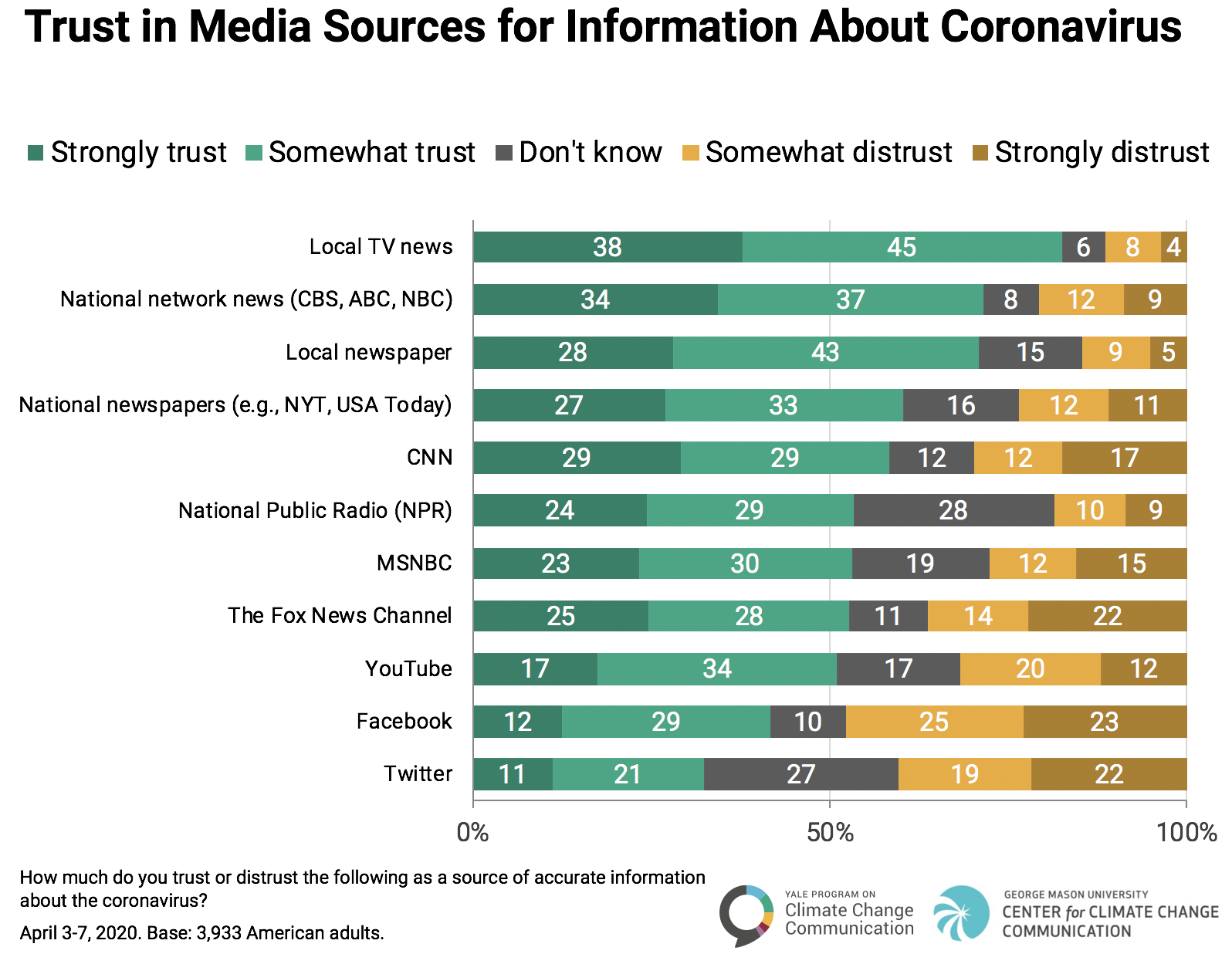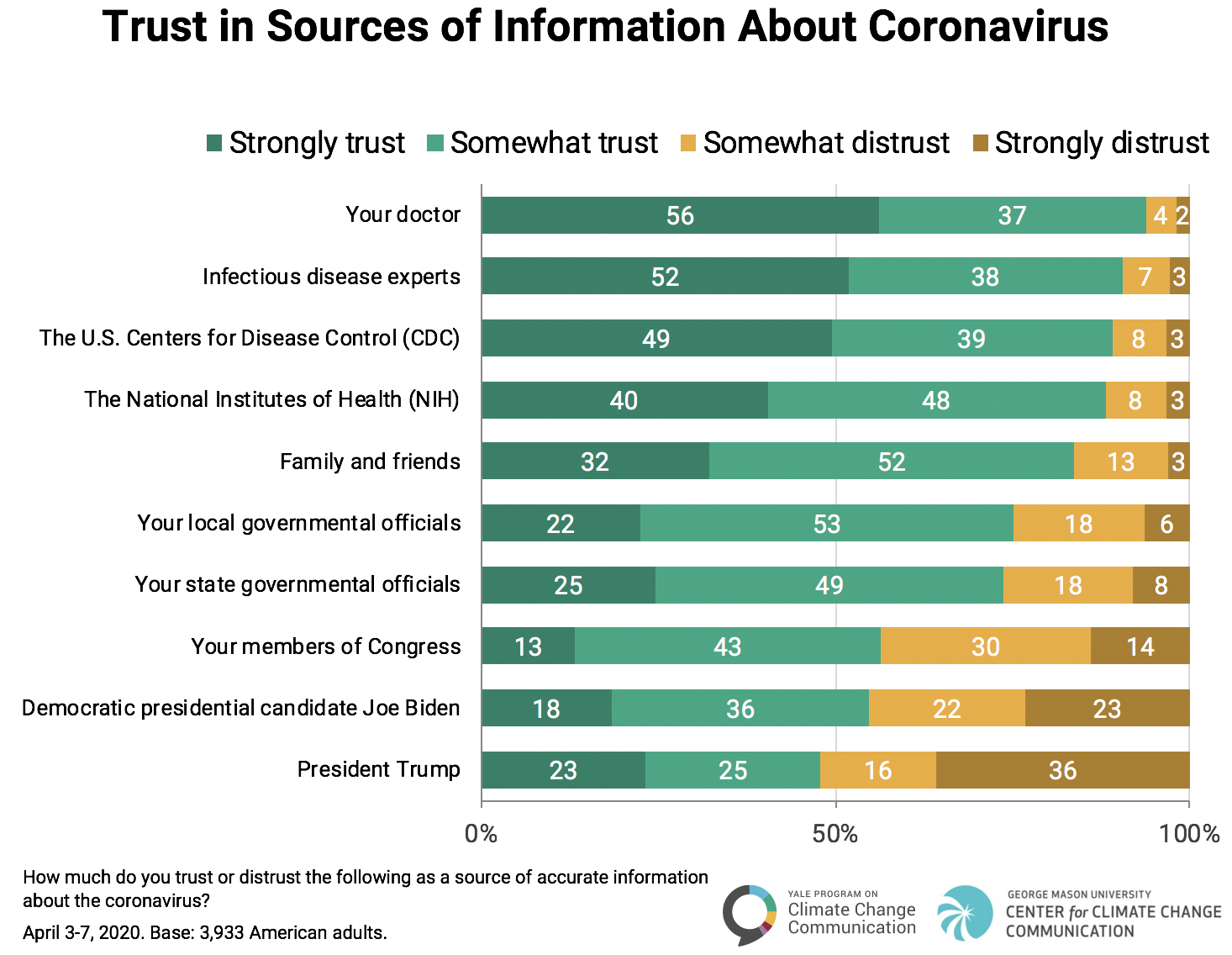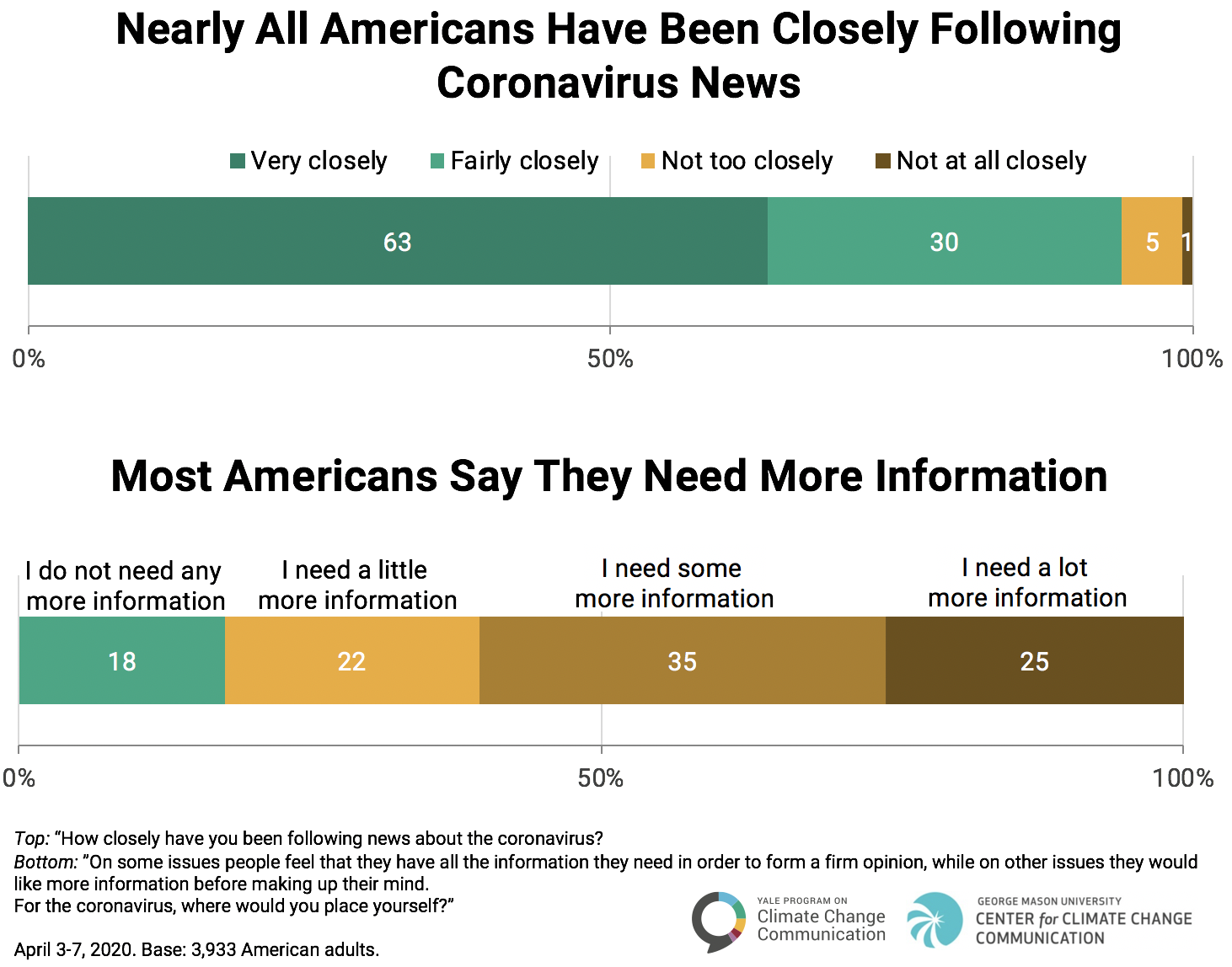Report · Apr 17, 2020
American Public Responses to COVID-19 – April 2020
By Matthew Ballew, Parrish Bergquist, Matthew Goldberg, Abel Gustafson, John Kotcher, Jennifer Marlon, Seth Rosenthal, Edward Maibach and Anthony Leiserowitz
Filed under: Messaging
2. Media and Other Sources of Information About the Coronavirus
2.1. Trust in media sources for information about coronavirus.
Majorities of Americans “strongly” or “somewhat” trust numerous media sources for accurate information about the coronavirus, and are most likely to trust local TV news, national network news (CBS, ABC, NBC), and their local newspaper. Americans are less likely to trust Facebook and Twitter as sources of accurate information about the coronavirus.
There is strong partisan polarization regarding several of these media sources. More Democrats than Republicans trust information about the coronavirus from national newspapers, the national network news, CNN, and MSNBC. In contrast, more Republicans than Democrats trust information from Fox News. However, Democrats and Republicans are similar in their low trust in information from social media (see Appendix II: Data Tables).
2.2. Trust in sources of information about coronavirus.
Americans express a high level of trust in medical experts as a source of accurate information about the coronavirus. About nine in ten Americans “strongly” or “somewhat” trust their doctor, infectious disease experts, the U.S. Centers for Disease Control (CDC), and the National Institutes of Health (NIH) for accurate coronavirus information. Trust in these medical experts is particularly high among Democrats (see Appendix II: Data Tables).
Smaller majorities of Americans trust their family and friends and their local or state government officials. More than half of Americans trust their members of Congress.
More than half of Americans (56%) trust Democratic presidential candidate and former Vice President Joe Biden as a source of accurate information about the coronavirus. African Americans, Hispanics, college graduates, and Democrats are more likely to “strongly trust” Joe Biden than to “strongly distrust” him (see Appendix II: Data Tables).
About half of Americans (48%) trust President Trump as a source of accurate information about the coronavirus. Only Republicans are more likely to “strongly trust” President Trump than to “strongly distrust” him (see Appendix II: Data Tables).
2.3. Nearly all Americans have been closely following coronavirus news, but most Americans say they need more information.
Nearly all Americans have been “very” (63%) or “fairly closely” (30%) following news about the coronavirus. Eight in ten Americans say they need either “a little” (22%), “some” (35%), or “a lot more” information (25%) about the coronavirus. Few Americans (18%) say they “do not need any more information” about it.
African Americans (39%), liberal/moderate Republicans (39%), and people living in urban areas (36%) are all relatively more likely to say they “need a lot more information” about the coronavirus (see Appendix II: Data Tables).


